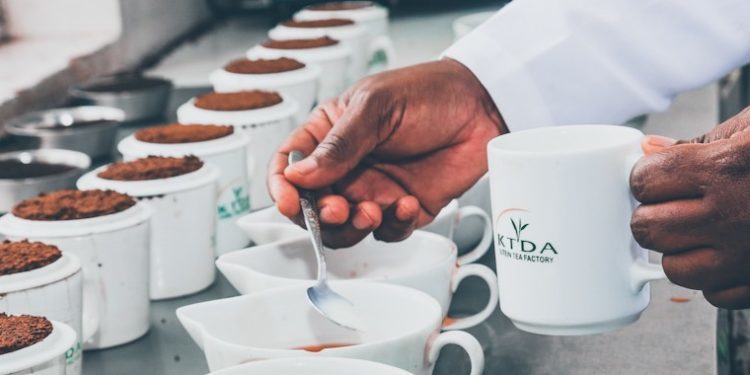The rising pile of unsold tea in the Mombasa auction has forced the government to drop the minimum reserve prices set in 2022, which aimed to cushion the market from falling prices of the beverage.
- Brokers were directed to sell tea at not less than US$2.43 but this ultimately led to the rejection of millions of kilos citing the prices did not match the quality of the beverage.
- In a circular from the East African Tea Trade Association, brokers have been urged to be considerate and avoid selling for prices below production costs.
- Moreover, those selling through Direct Sale Overseas (DSOs) have been requested to sell at prices above the auction prices.
“The Secretariat wishes to inform the trade that the minimum reserve prices which was imposed on Kenyan teas by the government in 2022 with the aim of stabilizing the market and cushioning the declining tea prices has been suspended,” the association said.
The latest data indicates that more than 100 million kilograms is yet to be sold. The longer they remain at the auction, the quicker the loss of their quality.
The Kenya Tea Development Agency (KTDA) has been blamed for poor management. The agency handles almost 90% of Kenya’s tea. On the other hand, officials from the agriculture sector have noted that high unsold volumes of tea can be attributed to depreciating quality in production. This comes even as competition from other producers heighten, with Rwandan tea fetching higher prices at the auction, surpassing Kenya.
The removal of the minimum price is intended to allow trading flexibility and hopefully give buyers the opportunity to clear the stocks from the second-largest black tea auction in the world. However, the association has called upon producers to prioritize better agricultural and processing practices to uphold the quality delivered at the auction.
As buyers continue rejecting tea from certain regions over quality issues, lower bonus payouts and farmers’ dissatisfaction inevitably follow. In the latest auction, massive volumes came from KTDA factories east of the Rift Valley, with those from the western side facing higher rejection rates.
Kenya is a net exporter but industry critics have questioned whether the auction method of selling the beverage align with the dynamic market. Some of the experts have called for the country to embrace aggressive marketing strategies that will require a uniform quality assurance system for the beverage.




